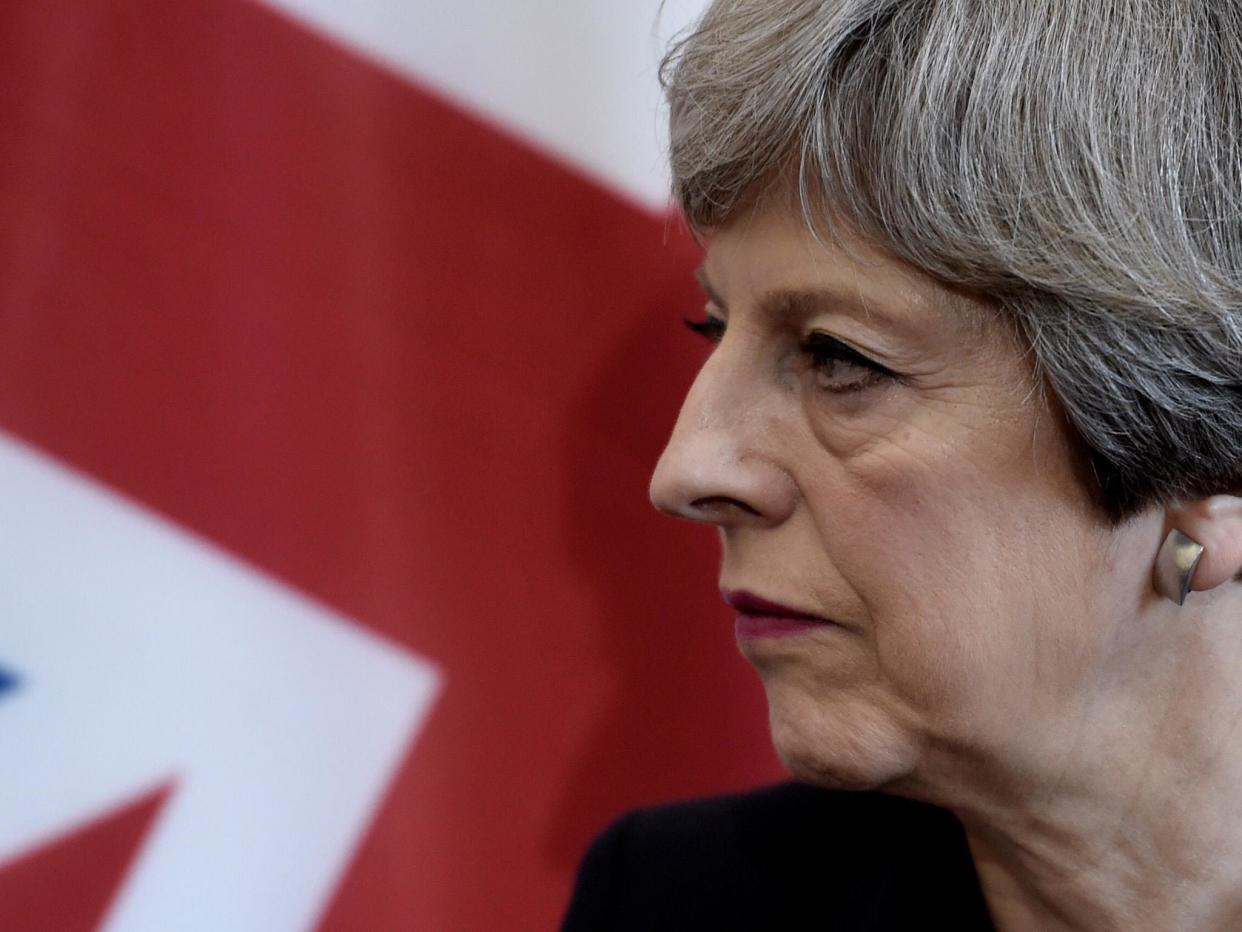Re-Leavers won’t accept a ‘no deal’ Brexit as willingly as Theresa May thinks

Until last weekend, the general election was following a predictable and carefully rehearsed script: Theresa May cruising to victory over a hapless Labour opponent; no need for risks or engagement with the public; a coronation, not a contest.
The rumpus over the “dementia tax”, and the subsequent U-turn that wasn’t, reminded us that she is fallible after all: lacking confidence and judgement, outside her comfort zone, in economic and social policy; prone to sudden lurches and reversals of direction (national insurance contributions and the self-employed; Hinkley Point; energy price caps; the timing of an election); excessively controlling and overdependent on a couple of unelected special advisers while too detached from her team of ministers. It remains to be seen if the damage is serious and permanent.
The Brexit debate could take a new twist or even recede into the background. We have already seen a move away from Brexiteers versus Remainers to a more subtle three-way argument between hard-core Brexiteers and Remainers and a third group – the Re-Leavers – which has “moved on” and accepted the need “to make the best of a bad job” through a successful negotiation: an amicable divorce. Since Theresa May is most closely associated with this third group she has, so far, harvested the political benefit. My party, associated in the public mind with uncompromising Remainers, appears to have suffered, by contrast. But this may not be the end of the story.
There are several planks to the Re-Leavers’ argument, all of which are proving vulnerable to critical debate and counter-argument. The first is that many of these “realists” want a soft Brexit, keeping most of our close trading and other links with the EU: collaborative research; common, high, environment standards; cooperation over policing and fighting terrorism.
Yet the Government has clearly and unambiguously ruled out many of these close links by declaring that it wishes to leave the single market and the customs union. It has been rather lazily assumed that it is necessary to leave the single market in order to manage immigration. Not so. Germany does not accept free movement of professionals who do not meet German standards. Switzerland has negotiated a form of single market agreement under which it restricts admission to those who have a job to go to: a sensible step when there is public anxiety over migration. There is no reason why the UK should not seek to negotiate such an agreement without throwing overboard the 30 years of agreed common standards providing considerable benefits to consumers and British business (as was envisaged when Margaret Thatcher launched the project, very much as a British creation).
The argument for leaving the customs union has been exposed as even weaker. There will potentially be serious disruption of cross-border supply chains which are at the heart of the business model of many firms which invested in the UK specifically to be part of an integrated EU operation. All in order to secure the questionable advantages of greater freedom to pursue bilateral trade deals. The abrupt dismissal of Theresa May and her ministers from India showed the vacuity of this ambition, as did the brusque reaction of Trump’s unsentimental trade advisors: that Britain has smaller “bandwidth” than the EU.
Yet there are those who have bought the argument that Theresa May needs a big majority to “strengthen her hand” in negotiation with the EU. It seems however wildly implausible that EU negotiators are calibrating their response in terms of her parliamentary majority rather than what is good for the EU and what is sellable to member states and the European parliament. The public do not yet seem to have grasped that there may be little scope for negotiation in any event as opposed to an offer on a largely “take–it-or-leave-it” basis.
Then there is the end-point: a “bad deal or no deal”. On this point the pragmatic Remainers may not be as reconciled to leaving as the Government currently believes. In particular, the idea of “crashing out” of the EU will seem like reckless folly to those whose businesses, jobs or research collaboration is on the line. Having a line of retreat is, by contrast, simply prudent. That is the point of the “second referendum” idea: not to disrespect the narrow majority who voted to leave or to rerun the first but to establish that the public accepts the terms of the proposed settlement. I am not a fan of referenda but I see no alternative mechanism to reverse course if this proves necessary.
So far, the Conservatives have been able to co-opt Ukip voters and values without losing too many of their traditional supporters who voted Remain. If the last two weeks of the campaign bring Europe back into the spotlight this unstable political alliance may start to crack.
Sir Vince Cable, the former Business Secretary, is the Liberal Democrat candidate in Twickenham

 Yahoo News
Yahoo News 
